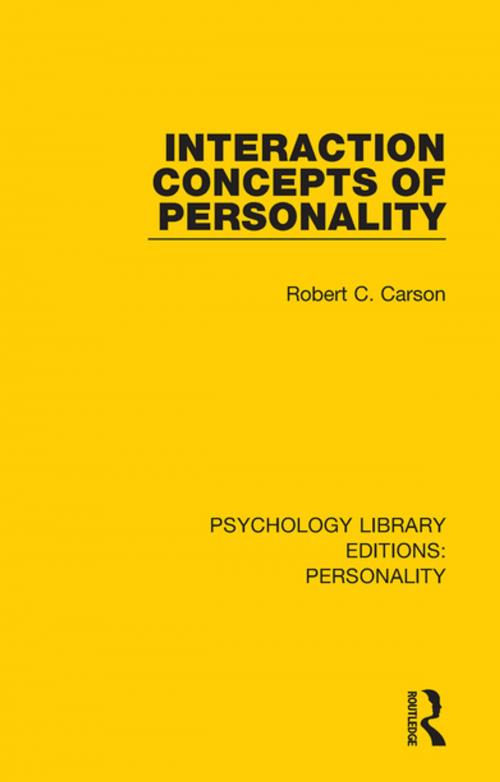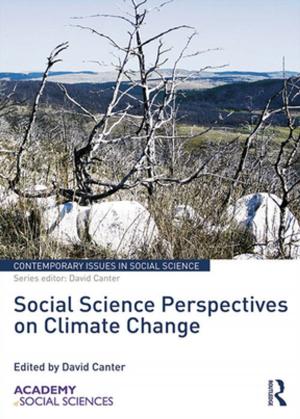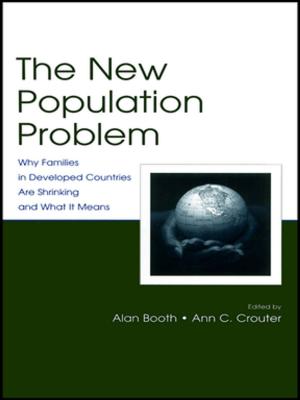| Author: | Robert C. Carson | ISBN: | 9780429655814 |
| Publisher: | Taylor and Francis | Publication: | March 4, 2019 |
| Imprint: | Routledge | Language: | English |
| Author: | Robert C. Carson |
| ISBN: | 9780429655814 |
| Publisher: | Taylor and Francis |
| Publication: | March 4, 2019 |
| Imprint: | Routledge |
| Language: | English |
"Personality" is an intimidatingly complex area of human behaviour, where empirically valid generalizations are not easily established or formulated, and where investigators at the time of publication were themselves a long way from the development of a commonly shared language and conceptual system. Originally published in 1969, Dr Carson’s book provided, for the first time, an empirically grounded, systematic framework to analyse, describe, and to some extent explain the transactions that occur between people from a standpoint of a personologist.
The author starts from a Sullivanian base, which views "personality" as a largely interpersonal phenomenon. He then reformulates Sullivanian conceptions into a more complete framework, one more firmly tied to observable events or empirically testable hypotheses. This work represents a unique effort to integrate, from available empirical findings and conceptual formulations within psychology and the social sciences, a comprehensive account of socially significant personal conduct. It brings together, within an integrating framework, diverse trends from modern behaviour theory, personality, social psychology, and behaviour disorder.
"Personality" is an intimidatingly complex area of human behaviour, where empirically valid generalizations are not easily established or formulated, and where investigators at the time of publication were themselves a long way from the development of a commonly shared language and conceptual system. Originally published in 1969, Dr Carson’s book provided, for the first time, an empirically grounded, systematic framework to analyse, describe, and to some extent explain the transactions that occur between people from a standpoint of a personologist.
The author starts from a Sullivanian base, which views "personality" as a largely interpersonal phenomenon. He then reformulates Sullivanian conceptions into a more complete framework, one more firmly tied to observable events or empirically testable hypotheses. This work represents a unique effort to integrate, from available empirical findings and conceptual formulations within psychology and the social sciences, a comprehensive account of socially significant personal conduct. It brings together, within an integrating framework, diverse trends from modern behaviour theory, personality, social psychology, and behaviour disorder.















